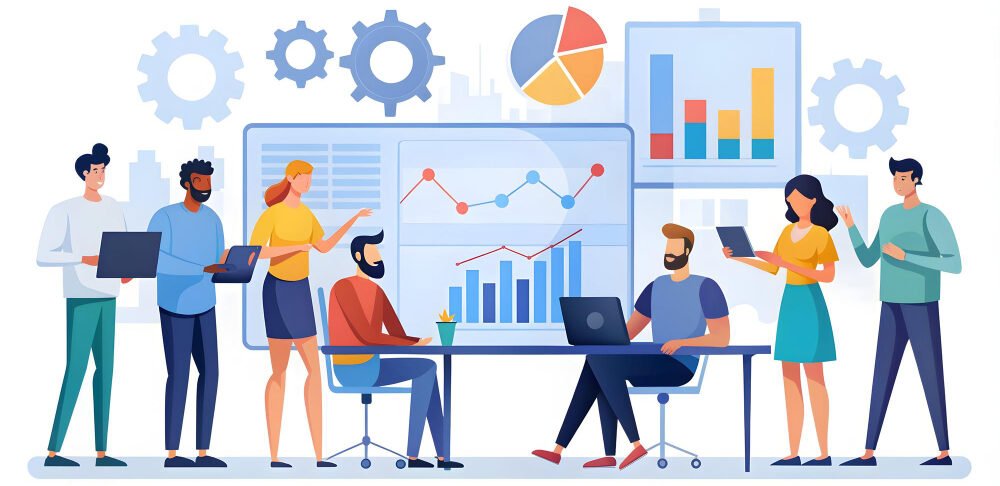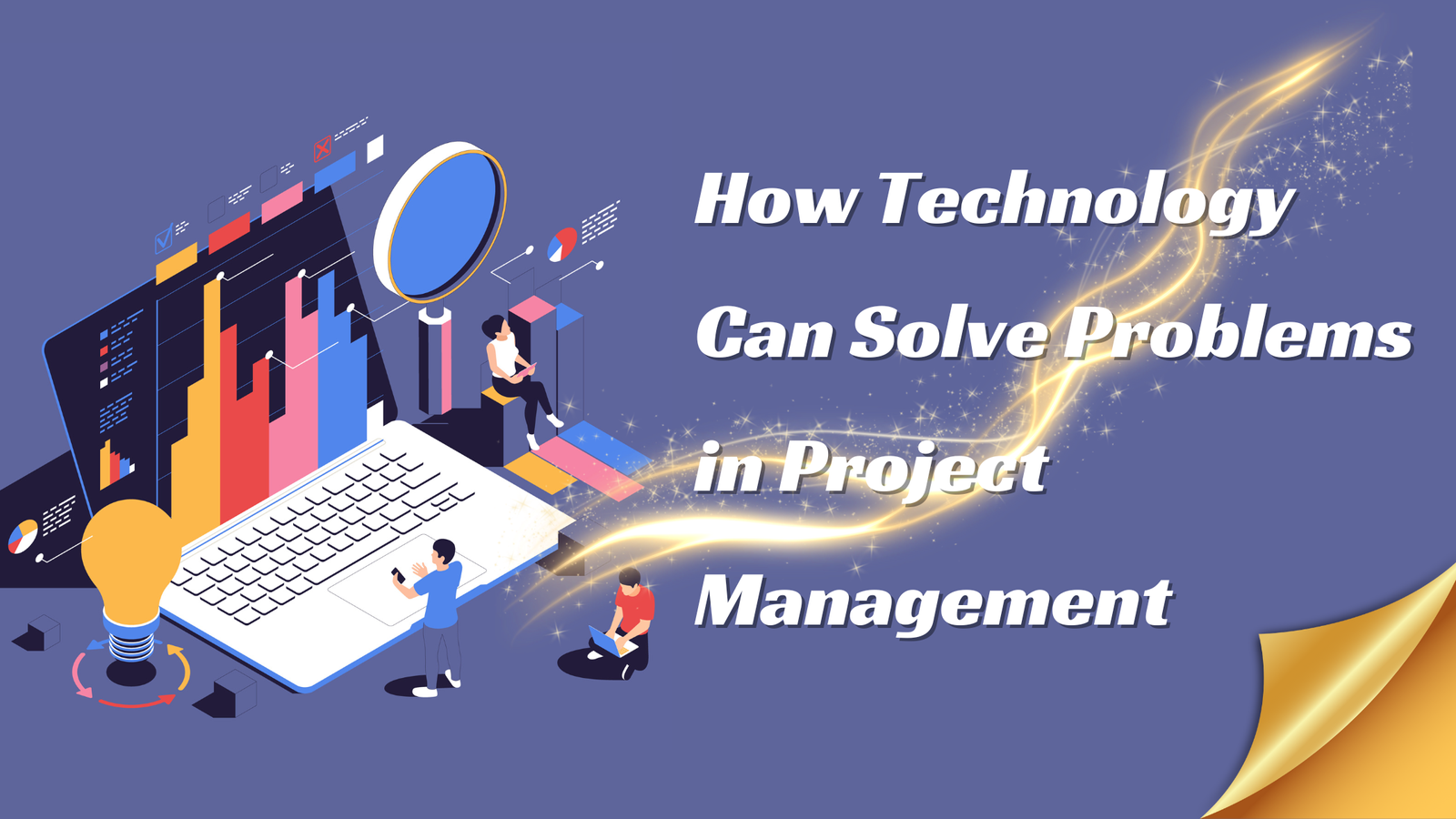How Technology Can Solve Problems in Project Management
- 1 How Technology Can Solve Problems in Project Management
- 1.1 1. Enhanced Collaboration and Communication
- 1.2 2. Improved Resource Management
- 1.3 3. Streamlined Project Planning and Scheduling
- 1.4 4. Risk Management and Mitigation
- 1.5 5. Enhanced Decision-Making
- 1.6 6. Automation of Repetitive Tasks
- 1.7 7. Better Budget Management
- 1.8 8. Improved Stakeholder Engagement
- 1.9 9. Knowledge Management and Documentation
- 2 Conclusion
Project management is a complex discipline that involves planning, executing, and closing projects. It requires balancing time, cost, and quality while managing resources and stakeholder expectations. With the rise of digital transformation, technology has become indispensable in addressing project managers’ myriad challenges. This article explores how technology can solve problems in project management, enhancing efficiency, collaboration, and decision-making within the realm of project management courses online, redefining the very landscape of education and execution.
How Technology Can Solve Problems in Project Management

1. Enhanced Collaboration and Communication
One of the most significant challenges in project management is ensuring effective communication among team members, especially in geographically dispersed teams. Traditional methods like emails and phone calls often fall short of maintaining the flow of information and keeping everyone on the same page. Technology offers several solutions to enhance collaboration and communication:
- Project Management Software: Tools like Asana, Trello, and Jira provide real-time platforms where team members can collaborate. They offer features like task assignments, status updates, and file sharing, ensuring everyone can access the latest information.
- Instant Messaging and Video Conferencing: Applications like Slack, Microsoft Teams, and Zoom facilitate instant communication and virtual meetings. They help reduce the communication gap, making it easier to address issues promptly.
- Document Collaboration: Platforms like Google Workspace and Microsoft Office 365 allow multiple users to work on documents simultaneously. This real-time collaboration reduces version control issues and ensures everyone is working on the latest document.
2. Improved Resource Management
Effective resource management is crucial for the successful completion of any project. Technology aids in optimizing resource allocation, tracking, and utilization:
- Resource Scheduling Tools: Software like Resource Guru and Float help plan and schedule resources efficiently. They provide visibility into resource availability and utilization, ensuring that resources are not over-allocated or underutilized.
- Time Tracking Tools: Applications like Toggl and Harvest allow team members to log their working hours on specific tasks. This data helps analyze productivity, identify bottlenecks, and make informed decisions about resource allocation.
3. Streamlined Project Planning and Scheduling
Project planning and scheduling are foundational aspects of project management. Technology simplifies these processes, making them more accurate and efficient:
- Gantt Charts and Timelines: Tools like Microsoft Project and Smartsheet offer Gantt charts and timelines that visually represent project schedules. They help identify task dependencies, set deadlines, and track progress.
- Critical Path Analysis: Project management software can automatically calculate the critical path, identifying tasks directly impacting the project completion date. This allows project managers to focus on crucial activities for timely delivery.
4. Risk Management and Mitigation
Every project carries risks that can impact its success. Project managers’ fundamental responsibility is identifying, analyzing, and mitigating risks. As an illustration in a practical business scenario, by leveraging help from experienced St. Louis managed IT services, the right technology can be deployed to provide robust solutions for risk management. This partnership enables project managers to utilize advanced tools and analytics, enhancing risk visibility and facilitating proactive measures to address potential challenges:
- Risk Management Software: Tools like RiskWatch and Active Risk Manager help identify potential risks, assess their impact, and develop mitigation strategies. They provide a centralized platform for tracking and managing risks throughout the project lifecycle.
- Predictive Analytics: Advanced analytics tools can predict potential issues by analyzing historical data and identifying patterns. This proactive approach enables project managers to address risks before they become critical.
5. Enhanced Decision-Making
Effective decision-making is critical for project success. Technology provides project managers with the data and insights needed to make informed decisions:
- Data Analytics: Tools like Tableau and Power BI help visualize project data, uncover trends, and derive actionable insights. They enable project managers to make data-driven decisions, improving project outcomes.
- Dashboards and Reporting: Project management software often includes customizable dashboards and reporting features. These provide real-time visibility into project performance, allowing stakeholders to monitor progress and make timely decisions.
6. Automation of Repetitive Tasks
Automation plays a crucial role in reducing the manual effort required for repetitive tasks, allowing project managers to focus on strategic activities:
- Task Automation: Tools like Zapier and Integromat automate data entry, notifications, and status updates. This not only saves time but also reduces the risk of human error.
- Workflow Automation: Project management platforms often include workflow automation tools that streamline processes like approvals, change requests, and issue resolution. This ensures that tasks are completed efficiently and consistently.
7. Better Budget Management
Managing project budgets is a complex task that requires careful planning and monitoring. Technology assists in budgeting and cost control:
- Budgeting Software: Tools like QuickBooks and FreshBooks provide functionalities for creating and managing project budgets. They offer features like expense tracking, invoicing, and financial reporting, helping project managers stay on top of project finances.
- Earned Value Management (EVM): EVM tools comprehensively view project performance by comparing planned versus actual costs and progress. This helps identify cost overruns and take corrective actions.
8. Improved Stakeholder Engagement
Improved stakeholder engagement and knowledge management further contribute to project success. By leveraging technology, project managers can navigate the complexities of their roles more effectively, ensuring successful project delivery in an increasingly digital world.
Engaging stakeholders effectively is crucial for project success. Technology provides tools to manage stakeholder expectations and communication:
- Stakeholder Management Software: Tools like Stakeholder Circle and Aware360 help identify stakeholders, analyze their influence and interest, and develop engagement strategies. They provide a structured approach to managing stakeholder relationships.
- Communication Platforms: Project management software often includes features for stakeholder communication, such as project portals, status updates, and feedback mechanisms. These tools ensure that stakeholders are informed and engaged throughout the project.
9. Knowledge Management and Documentation
Maintaining and sharing knowledge is essential for continuous improvement in project management. Technology aids in capturing, storing, and retrieving project knowledge:
- Knowledge Bases: Tools like Confluence and Notion provide centralized repositories for storing project documentation, lessons learned, and best practices. They ensure that valuable knowledge is accessible to all team members.
- Document Management Systems: Software like SharePoint and Dropbox Business facilitate document storage, version control, and access management. They streamline the documentation process, reducing the risk of information loss.
Conclusion
In conclusion, technology plays a pivotal role in solving various challenges in project management. It enhances collaboration and communication, improves resource management, streamlines project planning and scheduling, aids in risk management, and facilitates better decision-making. Additionally, automation reduces the manual effort required for repetitive tasks, while budgeting tools help manage project finances. Improved stakeholder engagement and knowledge management further contribute to project success. By leveraging technology, project managers can navigate the complexities of their roles more effectively, ensuring successful project delivery in an increasingly digital world.

















